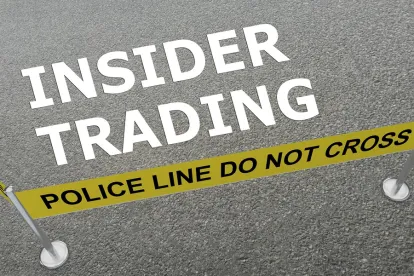The SEC and DOJ have long prioritized insider trading prosecutions. Moreover, insider trading cases frequently involve parallel investigations in which the SEC and DOJ share information and coordinate efforts to collect evidence in support of civil and criminal litigation. Despite some setbacks that prosecutors have faced in recent years as insider trading case law has evolved, there is no sign that either the SEC or DOJ is backing down from vigorously enforcing the law prohibiting insider trading. We have previously blogged about the recent case law changes and their effect on civil and criminal investigations. The Bharara Task Force on Insider Trading was created in late 2018 and released its report on January 27, 2020.
The Report reviews the history of insider trading law and past proposals for reform, and recommends new legislation to clarify and modernize this area of law. The Report also proposes model language for the suggested legislation.
One point of emphasis is that the law of insider trading is uncertain and complex—something noted repeatedly throughout the document. Traditionally, the SEC and DOJ have relied on the antifraud provisions of the federal securities laws, including Section 17(a) of the Securities Act of 1933 and Section 10(b) of the Securities Exchange Act of 1934 to prosecute insider trading. However, neither of these statutes specifically mentions insider trading. Accordingly, the law of insider trading has evolved based on common law court decisions. These decisions focus on “fraud” and “deception,” which can be particularly difficult or awkward to apply in a modern world where information is available through so many different outlets and algorithm trading is rampant. The legal uncertainty as to what constitutes “insider trading” is bad for prosecutors, defendants, and market participants who want to know what is and is not allowed.
The Report outlines four principles that should guide future legislation: “(1) Aim for clarity and simplicity; (2) Focus on ‘wrongful’ use of material nonpublic information, not exclusively on ‘deception’ or ‘fraud’; (3) Eliminate the ‘personal benefit’ requirement; and (4) Clearly and explicitly define the state of mind requirement for criminal and civil insider trading, as well as the knowledge requirement for tippees.”
The Task Force proposes the following language with respect to the misuse of material nonpublic information: “It shall be unlawful for any person, (a) directly or indirectly, to purchase or sell any security, while in possession of material, nonpublic information relating to such security, knowing that such information had been obtained or communicated wrongfully, or (b) to wrongfully communicate or communicate wrongfully-obtained material, nonpublic information knowing that such information will be used in the purchase or sale of any security.”
The Report further suggests that “Wrongfully shall mean obtained or communicated in a manner that involves (a) deception, fraud, or misrepresentation, (b) breaches of duties of trust or confidence or breach of an agreement to keep information confidential, express or implied, (c) theft, misappropriation, or embezzlement, or (d) unauthorized access to electronic devices, documents, or information.”
Authors also clarify that liability rests on “willfulness” for criminal violations. More specifically, the Report suggests the following language: “Any person who willfully violates this statute shall be sentenced to a fine not to exceed $5,000,000 or imprisonment of not more than 20 years, or both, except that when such person is a person other than a natural person, a fine shall not exceed $25,000,000. In order to distinguish liability for civil violations, SEC should be authorized to enforce the proposed statute by proving traders or tippers acted with “reckless disregard of the fact that material nonpublic information was wrongfully obtained or communicated.” Similarly, for tippee liability, the Report recommends the following language: “For criminal liability, the tippee should know that the tipper obtained or communicated information wrongfully, and for civil liability, the tippee should have at least recklessly disregarded that fact.”
In general, the Report seems to offer a common sense approach to more clearly defining unlawful insider trading for market participants and prosecutors. While Congress ponders the issue, one thing is for sure—the SEC and DOJ will not wait for any new legislation and will continue investigating and prosecuting instances of potential unlawful insider trading.






 />i
/>i
